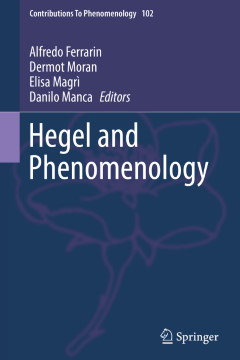Repository | Book | Chapter

(2019) Hegel and phenomenology, Dordrecht, Springer.
The notion of the "pure ego" is an expression which seems to have long been discredited. Even before the twentieth century – in the work of Hume, for instance – the idea that there is a pure pole of experience, and life, has been considered to be nothing more than a myth. More recently, criticism of the pure ego has often been made along the same lines as the criticism against the Cartesian self. That is to say, both have been regarded as something lacking not only a body, but also any psychological or historical qualifications. In this article, by means of a reconsideration of some ideas by Husserl and Hegel, I will try to show how it is possible to make sense of the pure ego, i.e. what kind of a real and, as it were, concrete meaning such an expression can have. I will claim that the capacity to refer to oneself as a pure ego is fundamental to our achievement of a (perhaps illusory, but anyway effective) understanding of oneself as a free agent.
Publication details
DOI: 10.1007/978-3-030-17546-7_6
Full citation:
Altobrando, A. (2019)., The phenomenology of the pure ego and its dialectical actuality, in A. Ferrarin, D. Moran, E. Magrì & D. Manca (eds.), Hegel and phenomenology, Dordrecht, Springer, pp. 93-114.
This document is unfortunately not available for download at the moment.



